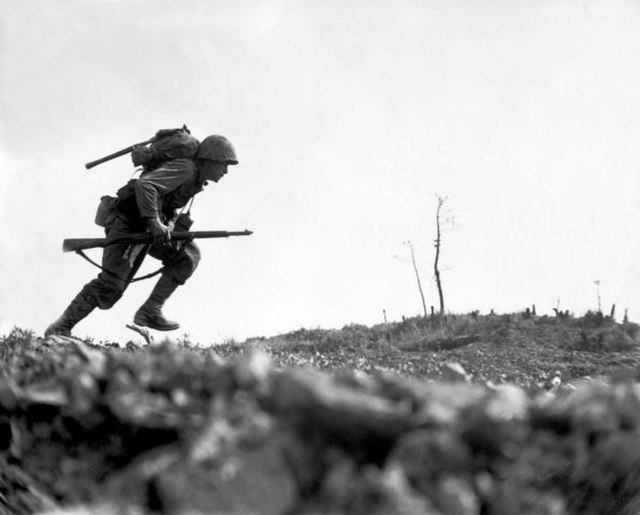War! How much suffering, death, and pain is in this word. Because of historical events, people can never truly live in peace. There will always be something to fight for, including national superiority, land, food, religion, and ideas. People fought long before our time and, sadly, they still do today.
According to historians’ calculations, more than fifteen thousand wars have resulted in the deaths of more than three billion people throughout the course of human history. Long wars that lasted tens or even hundreds of years were common. And then there were those that never even got off the ground. Ten of the shortest wars in recorded history are listed in this article.
What was the shortest war in history?
Doomsday War (18 days)
From October 6 to October 23, 1973, there was a war called Yom Kippur (October War). Israel and a coalition of Arab states engaged in a military conflict. By the way, Israel participated in a fourth Middle Eastern conflict during this one. The return of the lands that the Jewish state had taken during the six-day war was the main goal of hostilities.
The attack was carefully planned out by the coalition of Syria and Egypt, who selected the Israeli religious holiday of Judgment Day for the occasion. Jews try to avoid eating during this holiday while also praying nonstop. Nobody anticipated an attack, so Israel lost its first two days of battle. They soon succeeded, though, in taking control of the situation and stopping the enemy’s advance.
Observing the conflict’s escalation, the USSR issued a statement of support for the Arab states and issued a warning to Israel about what would happen if hostilities continued. The Israeli armed forces were then approaching the Syrian capital and traveling toward the Egyptian capital. Israel had to therefore pull back its troops.
The military conflict lasted for 18 days in total. About 3,000 soldiers from the Jewish state’s army died during this time, and 20,000 from Syria and Egypt.
Serbo-Bulgarian War (14 days)
The Serbian king declared war on Bulgaria in November 1885. This was brought on by territorial disputes, specifically Bulgaria’s annexation of the small Turkish province of Eastern Rumelia. Serbia was chosen to replace Bulgaria because this could make it more difficult for the Austro-Hungarian Empire to exert its influence in the Balkans.
From November 14 to November 28, 1885, Serbia and Bulgaria were at war with one another. There were about 2.5 thousand fatalities and 9,000 injuries during the two-week conflict. Even though there was no real redistribution of borders, the European states recognized the unification of Bulgaria with Eastern Rumelia as a result of the peace treaty that was officially signed in Bucharest the very next year.
Third Indo-Pakistani War (13 days)
India got involved in the civil war that was raging in East Pakistan in December 1971 because the region’s residents wanted independence. Due to the aggravation of the conflict and the difficult situation, there was a large influx of Pakistani refugees to India.
Indian troops were sent into Pakistan on Prime Minister Indira Gandhi’s orders because Pakistan benefited from the downfall of its longtime adversary. After less than two weeks of fighting, India finally achieved its hard goal: East Pakistan, now known as Bangladesh, won its long-awaited independence from West Pakistan.
Football war (6 days)
A military conflict between El Salvador and Honduras started on July 14, 1969. A football World Cup qualifying game took place before hostilities began. The winner would receive a place in the world championship. There were riots and violent fights between the supporters of the two nations in the city where the matches were played. Fierce also by long-standing complex territorial relations, the neighboring countries began to shoot down planes and carry out bombing raids. The enemy soldiers agreed to negotiate after four days of fierce fighting. And all hostilities ended on July 20.
Since both nations suffered economically and in terms of human casualties, there is actually no winner in this conflict. The loss of people has not yet been accurately calculated, but the figure is close to 6,000 dead, and these were mostly civilians.
Six-day war
There have been numerous conflicts between Israelis and Arabs throughout the course of human history. Israel and its adversaries Egypt, Iraq, Syria, Jordan, and Algeria fought another war in 1967. The conflict, which has grown to be one of the most dramatic in the Middle East’s recent history, lasted from June 5 to June 10.
The fact that Egyptian president Gamal Abdel Nasser publicly urged the eradication of the Jewish people was the catalyst for everything. Israel’s response didn’t take long to express; a month later, it attacked Egyptian airfields with an airstrike and started moving forward. Israel’s six-day aggressive assault resulted in the occupation of East Jerusalem, including its holy sites and the famed Western Wall, as well as Judea, Samaria, the Golan Heights, and the Gaza Strip.
With 679 casualties compared to 70,000 for the Arab side, Israeli losses were minimal. The Arabs also suffered significant losses in military equipment.
Israel started to take control of the area, which is now more than three times the size it was before the war. The Jerusalem Law, which declared East Jerusalem to be a part of Israel’s sovereign territory, was passed in the autumn of 1980.
Egyptian-Libyan War (4 days)
The 1977 military conflict between Egypt and Libya lasted only four days and brought no changes to any of the parties involved. Gaddafi, the ruler of Libya, set Egypt and its neighboring Arab nations on a course toward unification.
Egypt and Libya engaged in numerous tank and air battles over the course of the four-day conflict. A few Egyptian divisions moved into Musaid, a city in Libya. The warring parties reached a truce in the presence of outside parties after the hostilities had ended. The state borders remained unchanged after the conflict, and no agreements were ever reached.
Indian annexation of Goa (36 hours)
On December 18, 1961, India militarily invaded the Portuguese colony in the south of the Hindustan peninsula, beginning the Portuguese-Indian War.
Portugal still regards this as a liberation rather than an invasion because they still believe that India attacked them. In less than two days, the Indian army ended Portuguese rule in the Indian subcontinent’s exclaves.
Anglo-Zanzibar War (38 minutes)
Great Britain and the Sultanate of Zanzibar engaged in the shortest war in human history on August 27, 1896. It only lasted 38 minutes and was recorded in the Guinness Book of Records as a result.
The Sultan of Zanzibar, who seized control after the passing of his cousin, was disliked by Great Britain, which led to the start of this war. The state demanded that the ruler hand over his authority to their disciple, an Englishman. After his refusal, the British navy approached the coast of the island in the early morning, waiting for the expiration of the put forward ultimatum. A few cruisers and a number of small warships started firing at precisely nine o’clock.
The newly crowned sultan fled as his palace and only warships were completely consumed by flames. The British admiral fired a single shot at the island’s flag, which by international standards was a sign of surrender. From the start of the explosion to the moment the national flag fell, everything took place in just 38 minutes. Despite the fact that such a brief period of time was sufficient to claim the lives of nearly 600 Zanzibar residents.
Unfortunately, neither the number of deaths nor the effect the war had on both domestic and international life are related to how long it lasted. Everyone is affected by the horrible events of war, including people, animals, and birds.






